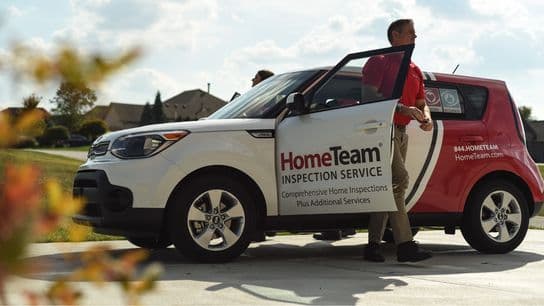Essential Lease Negotiation Tips for Franchisees
No lease is set in stone before you sign it. In this article, real estate expert Tim Murphy offers advice on negotiating your lease to get the most out of your franchise space.
Many franchise concepts require a brick-and-mortar shop, which means you may find yourself in need of some lease negotiation skills. 1851 Franchise spoke with Tim Murphy, real estate broker and CEO of Boomers Parks for some helpful insights on how to handle franchise lease negotiations like a pro.
Find a Space that Aligns with Your Needs
First things first, before you can negotiate a lease, you’ll need to find a space that meets the needs of your business. Location should, of course, be a top priority. You’ll want a property that’s easily accessible (either by car or by foot) and provides good visibility for consumers. You’ll also need to consider what services you’ll be providing or products you’ll be displaying to ensure the functionality of the layout of the space.
“It’s essential to focus on what is best for the franchise,” said Murphy. “Do your research on the size and layout of the space. Does it have all the amenities you’re looking for? Is the location appropriate for the brand? These are questions that may need to be considered prior to signing the lease.”
Consider your plans for growth to determine if the space will help or hinder your progress. Beyond the location and the physical layout, your budget will play a crucial role in your property selection. While you can narrow down your search based on your financial situation, there is also room for lease negotiation to improve the deal you are signing on for.
Understand the Lease Agreement
A lease agreement document can be quite complex, so be sure to read it carefully and seek professional help from a real estate lawyer if you are unsure about any of the terms. Understanding the lease type and negotiating favorable terms can have a big impact on costs and, as a result, on your business’ success.
“Make sure you fully understand the terms of the franchise agreement; ensure it suits your budget, seek hidden costs and discuss renewal terms for the future,” said Murphy. “Ultimately, you want to ensure the space will give you the highest value for your investment.”
Key factors to consider include: lease duration and renewal options, potential rent increases over time and the base rent versus the actual total cost of renting the property.
The base rent is typically straightforward, but you also need to consider the additional costs of property taxes, insurance, potential common area maintenance fees and utilities. Some fees will be paid by the landlord while others must be paid by the tenant, so make sure you understand which payments will be your responsibility.
You should also consider negotiating a tenant improvement allowance. If you take care to assess the space and any updates its needs, you may be able to negotiate a contribution from the landlord for updates or changes that suit your brand.
Negotiating fair and flexible exit clauses will allow you to exit your lease agreement or sublease the property should your plans change in the future.
Leases Are Negotiable; Your Success Shouldn’t Be
According to Murphy, it never hurts to ask: “If there’s something in the agreement you aren’t in favor of, offer a solution.”
If your negotiation efforts are not as fruitful as you would’ve liked, remember that you’re not obligated to follow through with an unsigned agreement. There may be something better suited for your needs out there.
“If negotiations do not lead to the terms of the lease being suitable for your franchise's needs, walk away from the deal,” said Murphy. “Remember, you want this space to help your franchise grow and to see success.”
Want to learn more about lease negotiation strategies and franchisee real estate issues? Check out these stories:
MORE STORIES LIKE THIS
San Antonio Franchisee to Open Paris Baguette Inside The Gunter Hotel in Hopes of Creating a Local Community Hub
Young Parents Chart a Colorful Course for the Future with Fresh Coat Painters Franchise
Utah Veteran Franchisee Wants to ‘Help People and Pay It Forward’ Through TruBlue Home Service Ally
Former Firehouse Subs Franchisee Transitions to Business Ownership With Fresh Coat Painters













